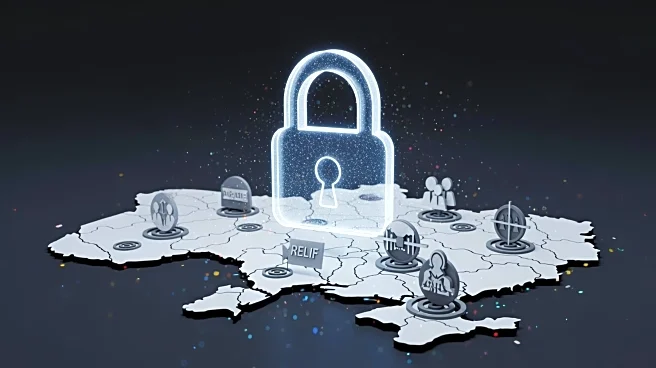What's Happening?
A sophisticated phishing campaign, dubbed 'PhantomCaptcha,' has been identified targeting humanitarian and government organizations involved in Ukraine's war relief efforts. The campaign impersonates the Ukrainian President's Office, sending phishing emails
with a malicious PDF document to employees of organizations like the International Red Cross and UNICEF. The document directs users to a fake Zoom site, which hosts malicious scripts. This attack uses a technique called 'ClickFix' to execute PowerShell commands, installing malware on victims' systems. The malware operates in three stages, including a downloader script, a reconnaissance module, and a remote access Trojan.
Why It's Important?
The PhantomCaptcha campaign represents a significant threat to organizations supporting Ukraine, potentially compromising sensitive information and disrupting relief efforts. The use of sophisticated techniques and rapid infrastructure changes highlights the attackers' capabilities and intent to evade detection. This campaign underscores the importance of cybersecurity measures and vigilance among organizations involved in humanitarian work. The potential impact on relief operations and the broader geopolitical implications of such attacks emphasize the need for coordinated cybersecurity defenses and international cooperation.
What's Next?
Organizations are advised to monitor PowerShell activity, enforce execution policy restrictions, and track suspicious WebSocket connections. Continued vigilance and adaptation of cybersecurity strategies are crucial to countering such threats. The campaign's connection to broader malicious activities, including mobile app vectors, suggests ongoing risks that require comprehensive security measures.
















